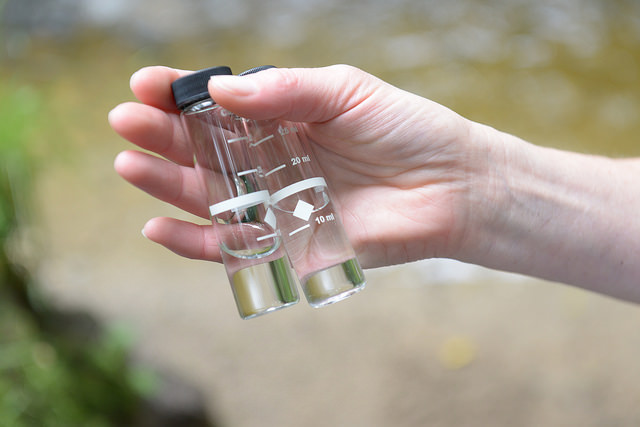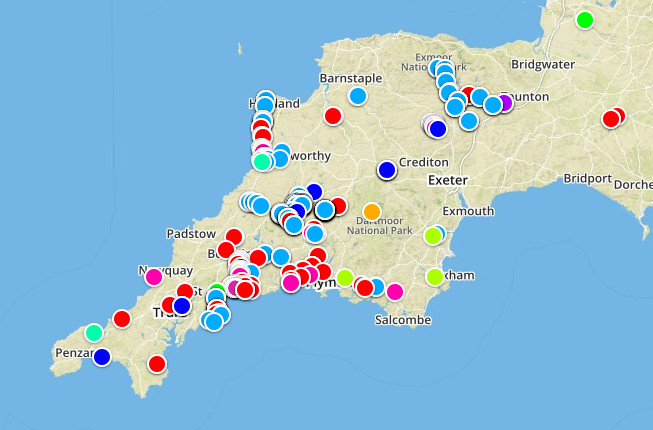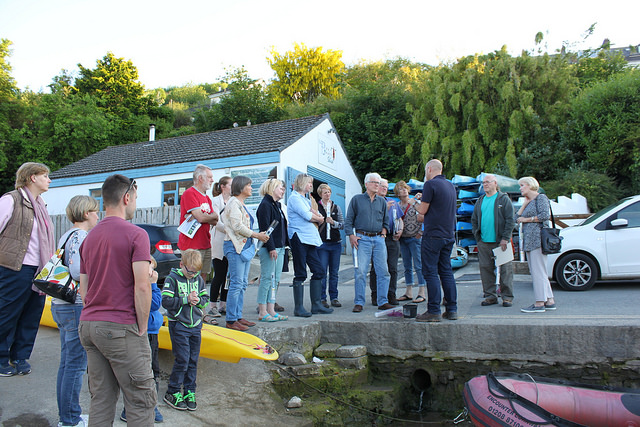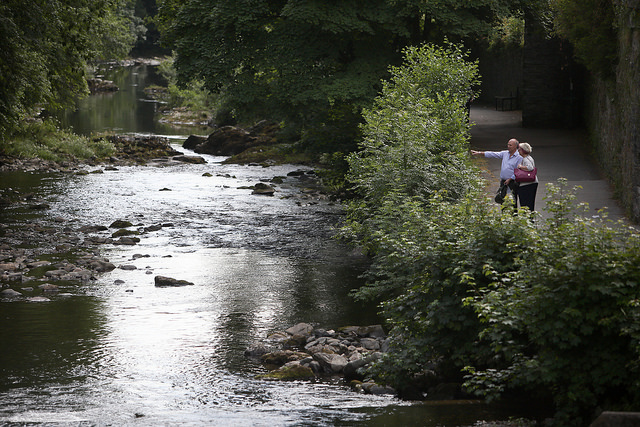Westcountry CSI
Tamar CSI (Citizen Science Investigations) was a successful pilot which is now active across the South West, as Westcountry CSI. It aims to engage people with the health of their local rivers, while alerting authorities to small-scale pollution incidents.
Aims
The Challenge
Large pollution incidents tend to be quickly dealt with by authorities, however, small-scale incidents can often go unnoticed or overlooked. These numerous minor incidents can, together, have a significant impact on water quality.
At the same time, local communities often know and care about their local rivers. As hosts of the Tamar Catchment Partnership, WRT have recognised a significant demand for education and engagement projects which help local communities to not only understand how they impact rivers, but to play a recognised role in improving the health of their local rivers.
Tamar CSI was designed as a means to highlight hotspots for small-scale pollution, while also developing local people’s interest and engagement with river health.

The Solution
Pilot Stage
Westcountry Rivers Trust (WRT) received National Lottery Funding to create an accessible platform for members of the public to report minor pollution events. This allows WRT to collate this information and when necessary pass it onto the Environment Agency or South West Water, depending on the type and cause of the pollution event.
Initially, WRT teamed up with FreshwaterWatch, who provide phosphate and nitrate testing equipment to citizen scientists and have an online recording system and mobile app. This was piloted with volunteers for a year, allowing WRT to gain insights and feedback from volunteers. The platform was popular with volunteers, and the purely online system of training and reporting allowed a wide audience to be engaged without the need for face-to-face meetings. However, some volunteers struggled with the online training, and project leaders found that a proportion of interested volunteers dropped out at each stage of the online system.
Developing Westcountry CSI
Therefore, to complete the project target of developing a new platform for citizen scientists, the lessons learnt from the successful and informative pilot using FreshwaterWatch were taken forward to create Tamar CSI, which was then extended to become Westcountry CSI.
The CSI members record water quality parameters and signs of pollution, as well as river channel characteristics and nearby land use. Features of interest are also recorded, both negative, such as invasive species, and positive, such as sightings of kingfishers and water voles. The record sheets are designed to record enough information to be useful, without being so technical as to be daunting. The system is flexible so that volunteers can choose to record only parameters they are confident or interested in identifying, and surveys can be undertaken as regularly as volunteers wish.
The data collected is loaded onto an online platform called ‘Cartographer’. This places a point at each sample location which shows each parameter, often using a colour scale, so that when the region is viewed, it is possible to see areas with high or low results. Volunteers can also supplement data with photographs. This data is all openly accessible to the citizen scientists, which provides potential for participants to go beyond data collection, with the ability to view other results and photos, see graphs of results over time and even undertake their own data analysis.



Citizen Scientists
Surveys
Lessons Learnt
A huge amount was learnt from the pilot scheme which fed into the development of Westcountry CSI. A key finding was to ensure the system is flexible, as this helps to keep each volunteer interested and excited about the project based on their own interests. Another useful finding was that although less frequent monitoring appears to be less demanding on the volunteer, encouraging more regular monitoring helps to keep people engaged. The scheme has proved popular!
The type of monitoring equipment, provision of information packs and ways of communicating with volunteers is still being adjusted and improved as the citizen science scheme continues to grow.
Become a Citizen Scientist with Westcountry CSI!
Westcountry CSI is building a team of enthusiastic volunteers who care about their local rivers. By taking 5 minute surveys, looking at things like wildlife, invasive species, signs of pollution and simple water quality measurements, the team is building up a record of river health across the Westcountry. Why not join in?
